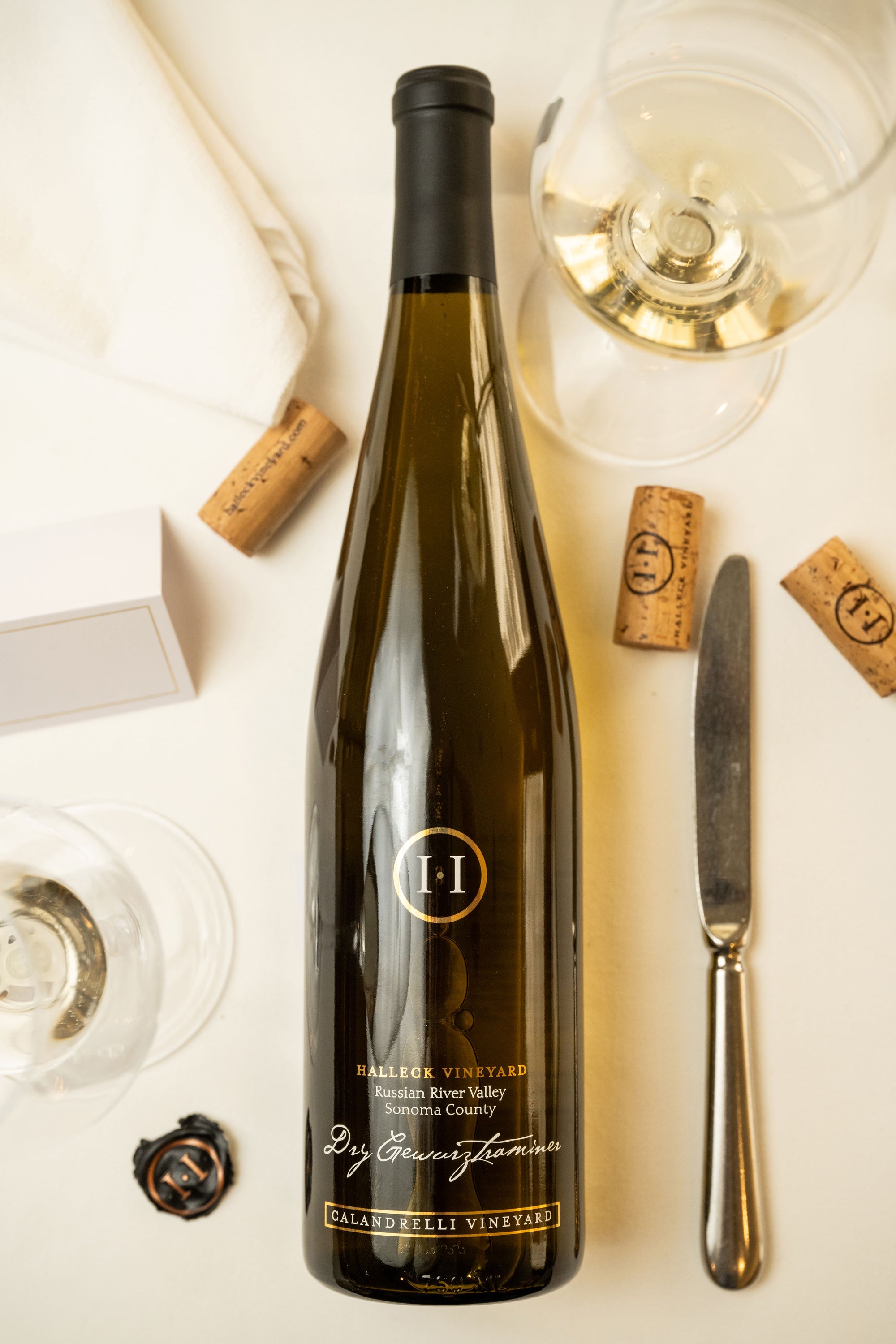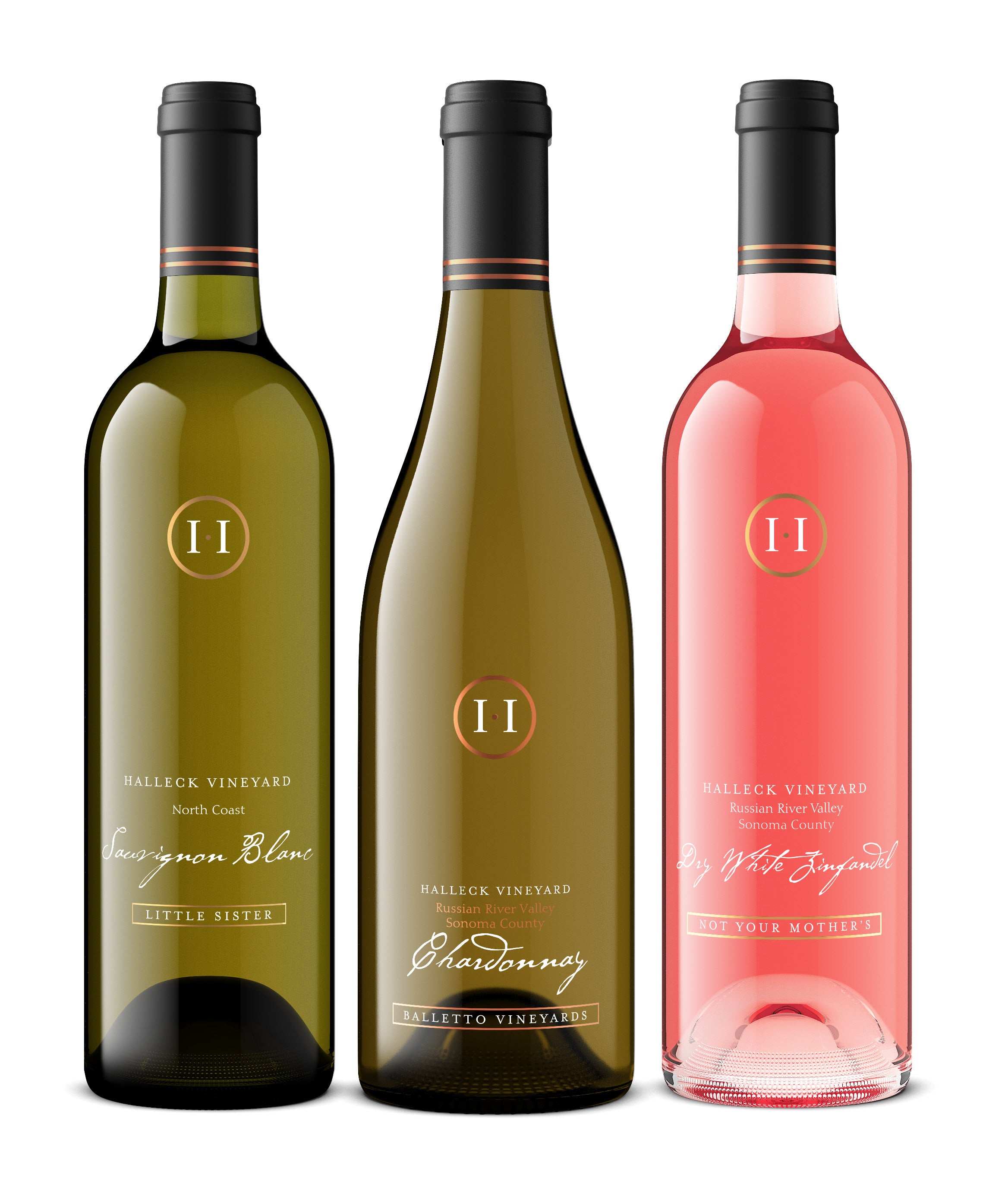Wineries Located Near Russian River Valley - Craft Wineries In Sonoma
Wine tasting is an art that requires practice and an understanding of assorted aspects involved in the process. One crucial factor of wine tasting is the development and interpretation of tasting notes, which serve as a guide for each novices and seasoned connoisseurs. A Guide To Understanding Winery Wine Tasting Notes can improve your wine-tasting experience, making it extra meaningful and pleasant.

Tasting notes are concise descriptions that seize the essence of a wine’s flavors, aromas, and total character. Often composed by professional tasters, winery tasting notes provide insights into the nuances of varied wines. They can help wine enthusiasts perceive what to anticipate from a particular bottle. Nevertheless, tasting notes can range widely in style and detail primarily based on the author's experience and palate.
Wineries Ideal For Romantic Getaways - Enjoying A Vineyard In Sonoma
When you first approach a glass of wine, your senses will begin to interact right away. The sight, odor, and taste of the wine will converge to give you an entire experience. Tasting notes generally start with the visual evaluation, where the colour of the wine is taken under consideration. Shade plays a major position in indicating the wine’s age, grape selection, and even its flavor profile.
After assessing the visual side, the subsequent step entails swirling the wine in the glass. This motion aerates the wine, allowing its aromas to awaken. Smelling the wine supplies critical perception into its complexity. The initial sniff can deliver a flood of scents that will embrace fruity, floral, natural, or earthy notes. This is often probably the most subjective a part of tasting, as individual experiences can dramatically differ.
In winery tasting notes, descriptors are sometimes categorized into primary, secondary, and tertiary aromas. Main aromas usually stem from the grape variety, secondary aromas derive from fermentation processes, and tertiary aromas come up from aging. Understanding these classes may help you respect the depth of a wine, and so they also provide the vocabulary to express your experience better.
Wineries Focusing On Single Vineyard Wines - Sebastopol's Vibrant Wine Scene
Following the olfactory encounter, your focus will shift to the taste of the wine. This is the place the primary characteristics—sweetness, acidity, tannins, alcohol—come into play. Tasting notes often element these flavors in a number of dimensions, including the preliminary assault on your palate to the lingering finish in your tongue. A high-quality wine will current a harmonious stability between these elements.
While tasting, it's essential to contemplate the body of the wine, which can be described as light, medium, or full. The body contributes significantly to your total impression, helping you think about how the wine pairs with food or whether or not it stands alone as a sipping wine. Balancing the body with the other traits will provide you with a fuller understanding of what the wine has to supply.
The finish of the wine, additionally referred to as the aftertaste, is one other crucial aspect usually included in tasting notes. A long, nice finish normally indicates the next quality wine, whereas a short or cloying aftertaste could recommend in any other case. Evaluating the finish can provide further perception into the wine's complexity and distinction.
Understanding the context of winery tasting notes is also priceless. Tasting notes can provide contextual details about the vineyard's location, local weather, and grape-growing practices. This context adds another layer of appreciation for the wine, permitting enthusiasts to connect the sensory experience with its origins, thus enhancing the enjoyment additional.
Wine Tasting Events In Sonoma County - Unforgettable Wine Tastings In Sonoma
Many wineries provide tasting notes on their web sites or labels, usually written in an approachable but informative style. Nevertheless, not all winery tasting notes are created equal. Some could also be overly technical, whereas others would possibly prioritize advertising flair over insightful evaluation. Learning to Sebastopol wineries navigate these notes can arm you with the knowledge to make informed choices when deciding on wines.
Taking Part in tastings at wineries can even deepen your understanding of wine tasting notes. Interacting with educated employees can give you a extra hands-on strategy to exploring different wines and the language used to explain them. Small Batch Wineries In Sonoma Valley. You'll have the chance to ask questions, have interaction in discussions, and probably refine your palate in real time.
Experimentation is crucial for mastering wine tasting notes. As you pattern totally different wines, try making your individual notes. Focus on describing the wine’s color, aroma, taste, and finish. Over time, you’ll develop a private vocabulary that resonates along with your sensory experiences. Each note you create will assist refine your palate, allowing you to understand wines at a deeper degree.
Spectacular Vineyard Views In Sonoma - Tasting Fine Wines In Sonoma County
In conclusion, a Guide To Understanding Winery Wine Tasting Notes provides a complete framework for diving into the world of wines. It equips you with the methods and language necessary to articulate your experiences. Whether you are a casual drinker or a dedicated aficionado, understanding and utilizing tasting notes can profoundly impact your wine journey. This knowledge not only enhances your enjoyment but also connects you deeply with the rich narratives each bottle tells. By embracing this journey, you become a part of the attractive mosaic of wine tradition, the place each sip unveils a model new story waiting to be discovered.
- Wine tasting notes sometimes embody a variety of sensory descriptions, together with aroma, flavor, acidity, physique, and finish, permitting tasters to fully respect the wine's characteristics.
- To enhance your understanding, familiarize your self with frequent wine terminology similar to "tannins," "oakiness," or "terroir," which can help decipher the notes more successfully.
- A systematic approach to tasting includes first visually assessing the wine's colour and clarity, followed by swirling to release aromas, then inhaling and describing what you experience.
- Taking notes throughout tasting might help determine patterns over time, improving your palate and making it simpler to recall preferences for future alternatives.
- Do Not overlook the influence of food pairings; tasting notes can differ greatly when a wine is loved with complementary flavors, altering perception and enjoyment.
- Pay consideration to the wine’s vintage, as weather conditions in a given yr can significantly have an result on the final product, adding one other layer to the tasting notes.
- Think About the winemaker's style and philosophy, which can form the wine's profile and influence how its notes evolve with every sip.
- Training with totally different grape varieties can broaden your vocabulary; every sort brings unique traits that may enhance your capacity to articulate tasting notes effectively.
- Engaging with wine professionals or attending tasting events can present valuable insights, providing a richer context for understanding personal tasting notes.
- Keep In Mind that tasting is subjective; particular person preferences and experiences will form one’s interpretation of the same wine, enriching the general enjoyment of wine exploration.
What are wine tasting notes?
Wine tasting notes are descriptive feedback made by tasters concerning the appearance, aroma, style, and end of a wine. They provide an outline of the wine's traits and can help shoppers perceive the style and quality of the wine.
Wineries Known For Sustainable Practices In Sonoma - Exploring The Vineyards In Sonoma County
Why are tasting notes necessary when deciding on wine?
Tasting notes can guide you in choosing a wine that suits your palate. They present insights into flavors and aromas, helping you to match wines with food or occasions. Understanding these notes enhances your overall wine experience.
How ought to I read wine tasting wine tasting and vineyard tours in Sonoma notes?
(Wineries In Dry Creek Valley)
Wineries Specializing In Sparkling Wines - Wine Tours And Tastings In Sebastopol
When reading wine tasting notes, take note of the construction: look for descriptions of colour, aroma, flavor, and finish. This will help you grasp the wine's profile and decide if it aligns with your preferences.
What terms commonly seem in wine tasting notes?
Widespread terms embody "tannin" (the structure), "acidity" (the crispness), "body" (the weight), and varied flavor descriptors like "fruity," "earthy," or "spicy." Familiarizing yourself with these terms can deepen your understanding of wine.
Spectacular Vineyard Views In Sonoma - A Winery In The Sonoma Valley To Discover

Am I Able To create my very own tasting notes?
Yes! Writing your individual tasting notes can improve your wine tasting experience. Focus in your observations of taste, aroma, and other sensory characteristics. This personal practice can help you refine your palate over time.
How do I identify the aromas in wine tasting notes?
Local Favorite Wineries In Sonoma - Best Vineyard Visits In Sonoma
To establish aromas, practice smelling quite a lot of scents and associating them with wines. Swirl the wine in your glass to release its aromas, then take a moment to breathe in deeply before identifying any outstanding scents.

What is the distinction between professional and personal wine tasting notes?
Professional tasting notes might use extra technical language and specific terminology, while personal tasting notes are subjective and replicate individual experiences. Both are useful for understanding and having fun with wine, but personal notes might resonate extra along with your unique tastes.
How can tasting notes improve my wine appreciation?
Romantic Winery Destinations In Sebastopol - Discovering Sonoma Area Wineries
Tasting notes can enhance your appreciation by helping you to understand and articulate the complexities of wine. They encourage mindful tasting and provide a framework for comparing different wines, resulting in a richer enjoyment of the beverage.
Are there any apps or instruments to assist with wine tasting notes?
Sure, there are a number of apps designed to help users record and manage their tasting notes. These instruments typically supply features like flavor wheel guides and wine database searches, making it easier to trace your journey by way of completely different wines.